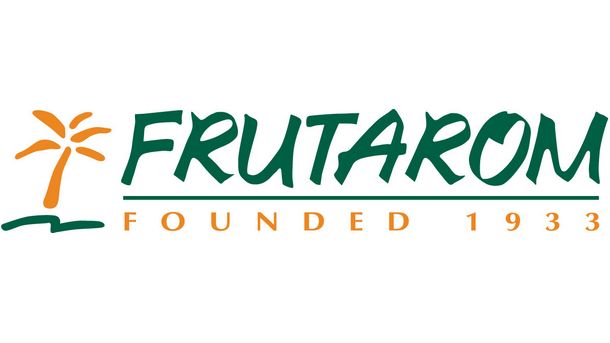Promotional Features
Neuravena: Applying scientific rigor to green oats to create a cognitive health ingredient
The brain health supplement sector is a growth market. With populations around the world aging and young and senior people alike seeking to maximize their cognitive capabilities, strong tailwinds are driving the industry forward. Yet, the sector remains a small fraction of the overall supplement industry and there is a shortfall of innovative, data-backed ingredients capable of breaking into the mainstream. In Neuravena, Frutarom Health has tried to develop such an ingredient.
Development of Neuravena took place against a backdrop of unseized opportunities in the brain health market. Estimates of the size and rate of growth in the brain health supplement sector vary. Nutrition Business Journal put the size of the United States cognitive health market in 2014 at $1.2 billion, compared to $1 billion in 2010 and a forecast $1.5 billion by 2020. Global figures from Euromonitor International show the brain health supplement market growing from $1.1 billion in 2007 to $1.4 billion by 2012.
Whichever numbers are used, some key trends remain constant. Both sets of figures amount to a compound annual growth rate (CAGR) of approximately 4%. This growth, while solid, is perhaps slower than could have been achieved given the secular trends that underpin the potential of the brain health supplement market. Notably, from 2000 to 2015 the number of people on earth aged 60 years or over grew from 607 million to 901 million. That amounts to a CAGR of approximately 3%, suggesting some of the growth in the sector is underpinned by demographic shifts.
That steady but unspectacular growth leads to the second conclusion that is consistent across all sources of market sizing data: The cognitive health supplement sector remains a small slice of the overall industry. With NBJ estimating the total US supplement sector is worth close to $37 billion, cognitive health products are thought to account for 3% of the overall market. Other market size estimates vary — and the $37 billion figure has been disputed in some quarters — but whichever numbers are used cognitive health products still account for 3% to 6% of the total industry.
This suggests there is significant scope for growth. A 2015 survey of more than 1,500 US adults aged 40 years and over by AARP — formerly known as American Association of Retired Persons — found 98% of people think it is important to maintain or improve brain health. Three-quarters of people are concerned about cognitive decline, and more than one-third say their memory has worsened. Taking vitamins or supplements is seen as an important counter to aging by 77% of people, but just 24% take products for this purpose and only 14% think they are very effective.
Developing a safe, effective ingredient
If the industry is to increase these numbers, it must provide high-quality products supported by extensive, rigorously-generated safety and efficacy data. Recognizing this, Frutarom set out to develop a new kind of cognitive health ingredient that delivers more immediate improvements to short-term memory, mental performance and other aspects of cognitive function than the well-established vitamins, minerals and fatty acids that currently dominate the market.
The development process focused on Avena sativa L., a plant more commonly known as green oats. The plant has a long history of therapeutic use and monographs show an effect on cognitive well being. However, variations in the quality of raw materials and extraction methods, plus a lack of clinical data to corroborate traditional knowledge of therapeutic effects, have limited consumer uptake.
To validate traditional knowledge with rational and modern scientific methods, Frutarom applied a bioassay-guided approach to selecting the variety of Avena sativa L. and extraction methods most likely to benefit cognitive performance. This led to the identification of a specific green oat variety that strongly inhibits two enzymes linked to cognitive function, monoamine oxidase B and phosphodiesterase 4.
The in vitro bioassays suggested Frutarom had a candidate that could inhibit degradation of biogenic amines and cyclic andenosine-3,5-monophosphate. Low levels of both substances are associated with cognitive health problems. However, Frutarom needed more data to show Neuravena was safe and effective, and as such it began in vivo testing.
In the first in vivo study, Frutarom gave Neuravena to rats for seven weeks and put the subjects through a battery of behavioral tests. The tests linked use of Neuravena to improved learning, a finding thought to stem from enhanced alertness and stress-coping capabilities.
A second in vivo study evaluated the electric brain activity of rats after administration of Neuravena. That study saw changes in all areas of the brain, in particular in the hippocampus — a part of the brain involved in forming memories — and dopamine pathways that suggested Neuravena acts on cognitive function and partly validated its mechanism of action.
With in vitro and in vivo data suggesting Neuravena was a safe, potentially-effective cognitive health ingredient, Frutarom began running clinical trials. Today, having completed five studies in humans, Frutarom has clinical data to support the findings of its in vitro and in vivo tests.
The most recent human study was a placebo-controlled, double-blind, randomized cross-over trial in 42 healthy adults who self-reported cognitive decline. Having taken a baseline of cognitive performance using the Computerized Mental Performance Assessment System (COMPASS), investigators administered single doses of either Neuravena or a placebo. Performance against COMPASS — a well-established cognitive domain test battery — was evaluated four times in the six hours after supplementation.
Subjects who received 800 mg of Neuravena reacted significantly faster to stimuli than people in the placebo cohort. The study also identified statistically-significant differences in the time it took the two groups to plan and execute the Peg and Ball task, an established test of accuracy, thinking time and speed of performance. Other areas in which Neuravena outperformed placebo include tests of spatial memory span and episodic memory.
Frutarom initiated the 42-person placebo-controlled trial after putting Neuravena through four other clinical studies. Notable findings from these studies include electroencephalography results that suggest the brains of people who have taken the extract respond differently to mental stress than those of people who have received a placebo.
In between those two trials, Frutarom ran studies that linked Neuravena to improved focused attention in older people with lower cognitive status, and to better outcomes in people who were trying to reduce their use of tobacco.
Building trust through safety and purity
The availability of ingredients developed using rigorous and modern scientific methods and backed up by extensive preclinical and clinical efficacy and toxicology data will go some way to convincing more people of the merits of cognitive health supplements. However, this is only one part of the process of building trust with customers. Manufacturers must also prove their supplements meet consumer expectations of safety and quality.
Frutarom considered the need for Neuravena to meet these consumer expectations of product safety and purity throughout the development of the extract. The bioassay-guided approach to cultivar selection means the raw plant material used to create Neuravena has been carefully selected. A single variety of green oats is grown under contract cultivation, giving Frutarom full traceability across its supply chain.
Once Frutarom has the raw material, it applies its proprietary process technology EFLA HyperPure to them to ensure the extract is free from contaminants such as polycyclic aromatic hydrocarbons. The process also improves the solubility of the ingredient. This results in an extract that meets the needs of manufacturers that want to use it in various food and supplement matrices, and allays the concerns of consumers who want to know the products they take are safe and pure.
These are significant considerations for consumers and dietary supplement manufacturers in 2017. Over the past few years, the fallout from Senator Claire McCaskill’s probe into brain health products, PBS Frontline’s investigation into supplement safety and other actions have raised the profile of the less reputable side of the industry. The supplement market appears to have weathered these storms, but the long-term growth of the overall sector and cognitive health’s share of it can only be assured by delivering products consumers trust.
In Neuravena, Frutarom thinks it has an extract that will play a role in this process. By combining traditional therapeutic knowledge with modern scientific rigor, Frutarom has created a cognitive health ingredient that is supported by data on its effect on attention, alertness, concentration in stressful situations and other measures of brain function.


